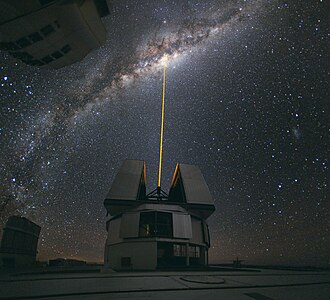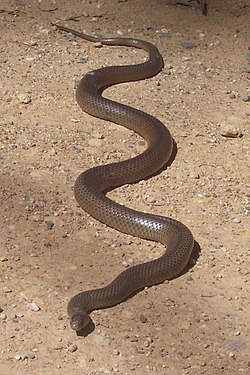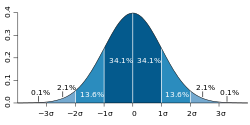Portal:Science
Science portal

Science is a systematic discipline that builds and organises knowledge in the form of testable hypotheses and predictions about the universe. Modern science is typically divided into two or three major branches: the natural sciences (e.g., physics, chemistry, and biology), which study the physical world; and the social sciences (e.g., economics, psychology, and sociology), which study individuals and societies. Applied sciences are disciplines that use scientific knowledge for practical purposes, such as engineering and medicine. While sometimes referred to as the formal sciences, the study of logic, mathematics, and theoretical computer science (which study formal systems governed by axioms and rules) are typically regarded as separate because they rely on deductive reasoning instead of the scientific method or empirical evidence as their main methodology. (Full article...)
Featured article -
Featured pictures
Vital articles

Astronomy is a natural science that studies celestial objects and the phenomena that occur in the cosmos. It uses mathematics, physics, and chemistry in order to explain their origin and their overall evolution. Objects of interest include planets, moons, stars, nebulae, galaxies, meteoroids, asteroids, and comets. Relevant phenomena include supernova explosions, gamma ray bursts, quasars, blazars, pulsars, and cosmic microwave background radiation. More generally, astronomy studies everything that originates beyond Earth's atmosphere. Cosmology is a branch of astronomy that studies the universe as a whole. (Full article...)
Did you know...
- ... that the magazine Science Fiction Chronicle changed its name to just Chronicle two decades after its launch, to avoid being confused with the San Francisco Chronicle?
- ... that Brian Stableford blamed the cancellation of the follow-up to his 2006 book Science Fact and Science Fiction: An Encyclopedia on the availability of information online?
- ... that Jill, Duchess of Hamilton, donated her body to science because "funerals are a bore"?
- ... that a 1989 science show featured an unusually long signal delay?
- ... that E. F. Bleiler conducted research for Science-Fiction: The Gernsback Years by reading all 1,835 stories published in science fiction magazines between 1926 and 1936?
- ... that Ladislav Burlas, a musicologist at the Slovak Academy of Sciences for almost 40 years, wrote more than 150 works during his career?
Get involved
| This portal needs to be updated. Please help update this portal to reflect recent events or newly available information. Relevant discussion may be found on the talk page. |

|

|
Science News
- 14 April 2025 – Blue Origin NS-31
- A Blue Origin New Shepard launch vehicle makes a brief sub-orbital spaceflight, carrying six female space tourists, marking the first all-female spacecraft since 1963's Vostok 6 which had Valentina Tereshkova as the pilot and the spacecraft's solo passenger. (NPR) (USA Today)
- 1 April 2025 – Private spaceflight
- SpaceX successfully launches four humans into orbit over Earth’s poles for the first time for the human spaceflight mission Fram2. The journey will last three to five days. (The New York Times)
- 26 March 2025 –
- Scientists discover Mongolian dinosaur Duonychus tsogtbaatari. (NBC News)
- 25 March 2025 –
- A 6.7 magnitude earthquake hits New Zealand causing a tsunami warning to be issued. A tsunami was then spotted in Fiordland. [1]
- 7 March 2025 – Stand Up for Science 2025
- Organized demonstrations and walkouts of scientists take place across 30 cities in the United States and France in protest of the Donald Trump administration's grant budget and employment cuts to several government scientific agencies. (AP)
- 6 March 2025 –
- According to a report in the academic journal Science, the population of the 554 recorded species of butterflies in the U.S. have declined by 22% since 2000. (NPR)
Related portals
Top 10 WikiProject Science Popular articles of the month -
Categories -



































































